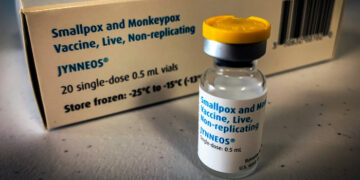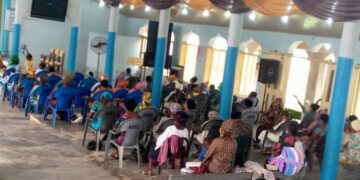Those in the Nigerian military, according to the Petroleum and Natural Gas Senior Staff Association of Nigeria (PENGASSAN), are to blame for the country’s alarmingly high rate of crude oil theft.
On Wednesday, Senator Akpan Bassey presided over a Senate probe into oil theft and smuggling. PENGASSAN made this statement at the hearing.
According to Festus Osifo, national head of PENGASSAN, oil theft is a joint operation involving the military troops tasked with guarding oil installations and the locals operating illegal refineries.
He said that lawbreakers were being assisted by the military and other security services, with the knowledge of the authorities responsible for overseeing the nation’s petroleum business.
In light of this, Osifo issued a call to action to the relevant regulatory bodies and security organizations, imploring them to wake up to their duties and work together to find solutions.
Specifically, he accused members of the Amphibious Brigade stationed in Port Harcourt and their Navy counterparts of colluding with locals to steal.
One of the main challenges we have, which nobody has addressed, is that there is strong connivance of our security forces in the crime,” Osifo claimed. This is without a shadow of a doubt. We have reports that officers in our armed forces, both military and naval, have paid their superiors to be assigned to certain regions of the Niger Delta.
“I can say with absolute certainty to this committee that members of the Nigerian Army and Navy pay their superiors to be assigned to the Niger Delta. Despite the removal of the former Commander of the Amphibious Brigade in Port Harcourt, several personnel in the command still refused to be deployed out, citing the “lucrativeness” of their operations regions as a reason.
I seriously doubt that any of the folks in this room are the ones who can help us figure this out. You’ll want them to be the ones to operate the camera.
About 600,000 barrels of crude oil are stolen every day, according to Mr. Jide Adeola, Executive Commissioner, Corporate Services and Administration of the Nigerian Upstream Petroleum Regulatory Commission.
In his words, “As of now, Nigeria produces 1.23 million barrels of crude oil per day as opposed to 1.8 million barrels projected, leading to total revenue loss, as of today, of $2.1 billion or N877billion.”
The Committee’s Chairman, Akpan Bassey, expressed concern after reading the submissions, saying, “I have never witnessed economic sabotage of this size and it must be stopped.”
After consulting with other important parties including the Nigerian National Petroleum Corporation Limited, the Military, etc., he said, “the needed political will through the instrumentality of legislative intervention shall undoubtedly be done.”
The Senate also expressed dismay at the fact that oil thieves were siphoning off over 900,000 barrels per day, warning that this huge oil theft would bring down the economy.
According to Bassey, the National Assembly passed the Petroleum Industry Act last year, but if the current theft is not quickly stopped, it would also frustrate the implementation of the law.
The senator expressed dismay at the enormous loss of national oil income due to oil theft and sabotage during his testimony at the investigation hearing on the experience of the committee during its oversight tour to major platforms in the Niger Delta.
As Bassey explained, the committee found that monitoring crude oil pipelines was difficult since the pipelines were hidden by vegetation and had no clear right of way.
He explained to the parties involved that oil theft was just part of the problem; ineffective metering and monitoring by operators and the incapacity of security services to checkmate the incidences also had a role in the shortfall in the country’s oil income.
It has been seven months since the Bonny Terminal, which normally generates 60,000 barrels per day, has produced anything.
The Senate President, Senator Ahmad Lawan, also spoke at the event, declaring the investigative hearing open and explaining that the Senate believed oil theft negatively impacted the country’s oil production and revenues and thus decided to form the committee to develop a practical plan to stop the problem.
Lawan, who was not present but sent a representative, also urged those in attendance to devise a strategy to solve this national problem.
He lamented that security personnel and other stakeholders were helping the perpetrators commit the crime.
As stated by the Senate, “we created an ad hoc committee to unravel the thieves and come up with feasible ways to halt the issue, before December this year.”
Senator Kabir Kaya, who represents the Kano South senatorial district and sits on the committee, pointed out that although Nigeria produces 1.2 million BPD, the country’s quota from OPEC is 1.8 million BPD. He issued a challenge to the involved parties and the operators to figure out a way to fix the issue.





























